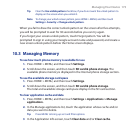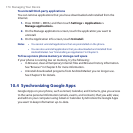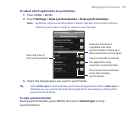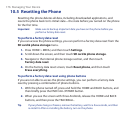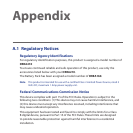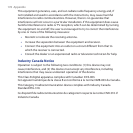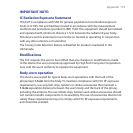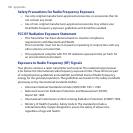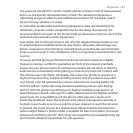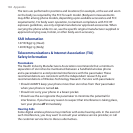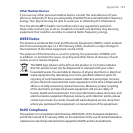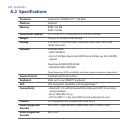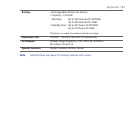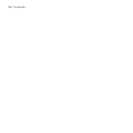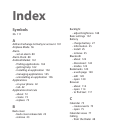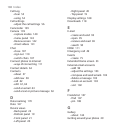Appendix 181
The exposure standard for wireless mobile phones employs a unit of measurement
known as the Specific Absorption Rate, or SAR. The standard incorporates a
substantial margin of safety to give additional protection for the public and to
account for any variations in usage.
As with other mobile radio transmitting equipment, users are advised that for
satisfactory operation of the equipment and for the safety of personnel, it is
recommended that no part of the human body be allowed to come too close to the
antenna during operation of the equipment.
Your phone has an internal antenna. Use only the supplied integral antenna. Use
of unauthorized or modified antennas may impair call quality and damage your
phone, causing loss of performance and SAR levels exceeding the recommended
limits as well as result in non-compliance with local regulatory requirements in your
country.
To assure optimal phone performance and ensure human exposure to Radio
Frequency energy is within the guidelines set forth in the relevant standards;
always use your phone only in its normal-use position. Do not touch or hold the
antenna area unnecessarily when placing or receiving a phone call. Contact with
the antenna area may impair call quality and cause your phone to operate at a
higher power level than needed. Avoiding contact with the antenna area when
your phone is IN USE optimizes the antenna performance and the battery life.
Tests for SAR are conducted using standard operating positions specified by
the FCC with the phone transmitting at its highest certified power level in all
tested frequency bands. Although the SAR is determined at the highest certified
power level, the actual SAR level of the phone while operation can be well
below the maximum value. This is because the phone is designed to operate at
multiple power levels so as to use only the power required to reach the network.
In general, the closer you are to a wireless base station antenna, the lower the
power output. Before a phone model is available for sale to the public, it must be
tested and certified to the FCC that it does not exceed the limit established by the
government-adopted requirement for safe exposure.



